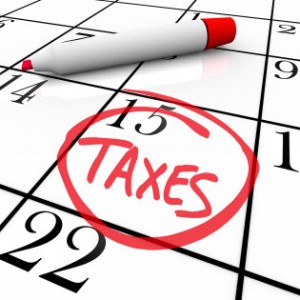Many people ring in the New Year with resolutions. These resolutions address things such as health, relationships, and finances. If a financial resolution is something you wanted to make for the new year, here is a list of suggestions to help you along the way:
1. Establish a Budget
With the beginning of the new year, you now have a chance for a reset with your finances. Take account of what you are bringing in, what you spend and your debts, and how to address paying them off. You can set your budget daily, weekly, monthly, and yearly. Whichever way gives you more of a command over your finances should be used. Take account of the payments you must make monthly such as your rent, cell phone, or car payment. By knowing what you must pay each month, you can be more prepared. Another form of preparation to your monthly bills is to set up auto payments where available. This can relieve the stress of keeping track of due dates.
2. Pay Off Debt
Part of being fiscally responsible is taking care of debt. Debt can accrue in the form of medical bills, credit cards, student loans, and much more. During the holiday season, we tend to spend more than at other times of the year. Office parties, Secret Santa, going out to eat, and buying gifts for our loved ones can add up. Often times, people put these purchases on their credit cards. This blog post from Nerd Wallet extensively explains the psychological impact of using credit versus cash. According to a survey conducted by MasterCard, Americans are using cash less than they were 10 years ago for purchases. Holiday spending is added on to our existing debts, which can make the task of paying off your debt more daunting. Set a monthly goal for debt. When paying your credit card, try not to just pay the minimum because that is how you end up paying more through interest. It is also best to pay off your debt that has the highest interest rate first. And if possible, try to use cash more often when making purchases of any kind so you have a better idea of what you are actually spending.
3. Be Prepared for Emergency
Emergencies in many forms can strike at any time. Whatever form your emergency bills may take, you should be prepared to take them on. With your existing expenses in mind, take note of where you can put away a little extra money somewhere for emergencies. It’s difficult to put a suggested amount for an emergency fund in numbers, but rather you should use time spans. As mentioned before, it is important to keep a budget; that way, you can anticipate what you will be spending. Suggested time increments to plan for an emergency fund could be 3, 6, or 9 months.
4. Save for Retirement
No matter what age or stage of employment someone is in, they should be lookin
5. Spend Less
This simple solution to your financial woes is often overlooked, but could be considered the most difficult to address. With your already established budget in mind, look where you can pare down spending. Look back at your credit card statements, checkbooks, and bank statements to see what could be eliminated. It is also important to look at where you are spending your money. Small steps like going to a local farmers market for some groceries can save you money while also supporting local business. Going out to eat is one of the top ways in which people spend money unnecessarily. For example, going out to lunch every day at work for around $10.00 adds up to around $200.00 a month and that is a conservative estimate. A small act like packing your lunch for work will save you more money than you realize and also will most likely be a more healthy option.
6. Keep an Open Dialogue
If you are the head of your household or manage the finances, keep everyone else informed. Children of all ages can be taught fiscal responsibility. They can do the same things listed here to keep track of their finances even if they do not carry all of the same responsibilities as an adult.
Waiting until the last minute with anything only creates more stress and the opportunity for mistakes. Start your preparation for tax season by gathering receipts, W-2s, pay stubs, and other relevant financial materials.
8. Generate Other Income Sources
Although it may only contribute a small amount, it does not take much effort to go around your house and look for things that you are not using that you could sell online. eBay, Craigslist, Gazelle, and local flea markets offer places to sell your gently used items for cold, hard cash.
9. Embrace Technology
The ease to buy things online can contribute to our monetary problems, but there are also ways to save and track your money with technology. Free apps like Mint can be downloaded to your phone or tablet and offer online bill paying, budgeting services, and credit scores.
10. Switch Banks
It may seem like a daunting task, but switching banks can save you money. Like with traditional brick and mortar stores, in-person banking is going the way of the Dodo. Online banks and credit unions can offer distinct advantages like higher interest rates on savings accounts, fewer overall fees, surcharge-free ATMs, and much more. Of course like with all financial decisions, do your research to make sure the bank is FDIC insured and offers other things that would make you willing to switch.



